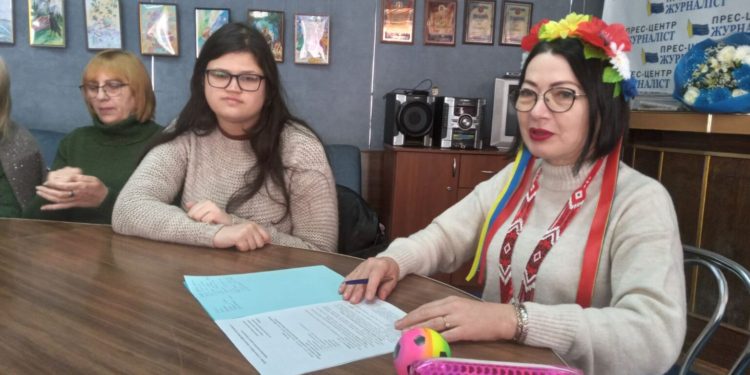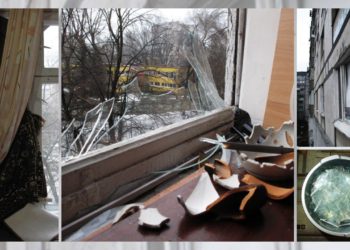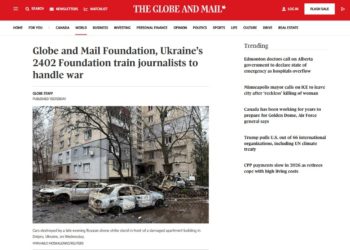Stress tolerance and problems of professional burnout were the issues discussed by media workers at a psychological training held at the Zaporizhzhia Journalists’ Solidarity Center (JSC) of the National Union of Journalists of Ukraine (NUJU). Regular monthly psychological training sessions for migrant journalists and Zaporizhzhia media workers at the JSC are of great benefit and help to stay normal and withstand all the challenges of the time with dignity – this is the opinion of absolutely everyone who participates in group classes of clinical psychologist Olha Lotsman.
“When we talk out loud how we feel, analyze our condition – this is the first step towards realizing what is happening to you and what to do about it,” Olha Lotsman emphasized. “She once again reminded media workers of the rule – “on an airplane:” first put on an oxygen mask for yourself, and then for your family and friends. It should be remembered that if you are resourceful, you will help others.”
It was informative to determine your level of vital energy using the “Clock” test, overcome muscle tension during the Jacobson Relaxation exercise, relax during the Australian Rain warm-up, etc.
If you feel constant exhaustion and loss of energy, apathy, irritation, increased distancing from work and colleagues, decreased motivation, and a sense of negativism or even aggression. If you devalue your achievements, feel a decrease in professional efficiency, or a sense of failure, this may indicate professional burnout. Physical signs may be weakness, headache, muscle pain, insomnia, or chronic fatigue. These manifestations indicate that it is time not only to take a breath but also to seek advice from specialists.
It is important to engage in self-recovery, which motivates and gives joy. Be able to plan your time, follow a sleep schedule, move, contact loved ones and friends, sift, dose news, and try to maintain balance in any circumstances. Drawing calms you down gives you a sense of security, and an interesting art technique is a mandala. Journalists learned many more interesting and useful things from the clinical psychologist of the regional hospital, Olha Lotsman – an extremely sincere, bright, and charismatic person. After meeting with her, a second wind opens up.
“We always look forward to meeting Olha Lotsman,” says Alla Shamrai, a journalist from Enerhodar. “Psychological help is vital for us. We are torn from our homes and our loved ones, who are currently in the occupied territory, so we cannot do without such strong psychological help.
We thank our Journalists’ Solidarity Center and the wonderful specialist Olha Lotsman for helping us to hold on in difficult times.
The network of Journalists’ Solidarity Centers is an initiative of the National Union of Journalists of Ukraine, implemented in collaboration with the International and European Federations of Journalists and UNESCO and with the support of the People of Japan. Our primary goal is to assist media professionals working in Ukraine during the war. The Centers are active in Kyiv, Kharkiv, Zaporizhzhia, Dnipro, Lviv, and Ivano-Frankivsk. The project is part of UNESCO’s broader efforts to support the Safety of Journalists and Freedom of Expression in Ukraine.
Call the Zaporizhzhia JSC at 096 277 5352 (Nataliya Kuzmenko and Valentyna Manzhura, the coordinators of the Zaporizhia JSC). The Center’s address is 15 Sobornyi Avenue.
Photo by Nataliya Stina

 THE NATIONAL UNION OF
JOURNALISTS OF UKRAINE
THE NATIONAL UNION OF
JOURNALISTS OF UKRAINE
















Discussion about this post